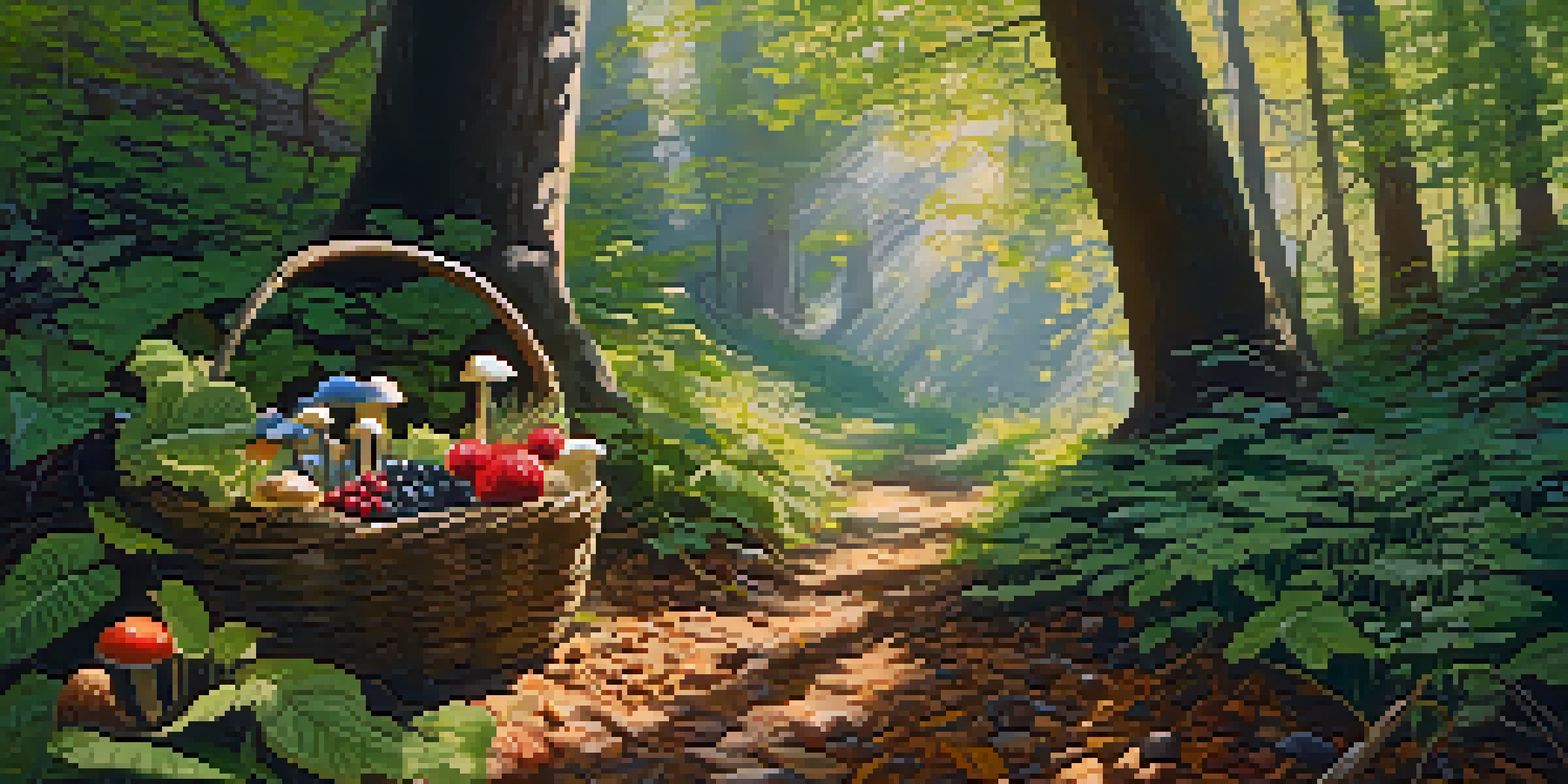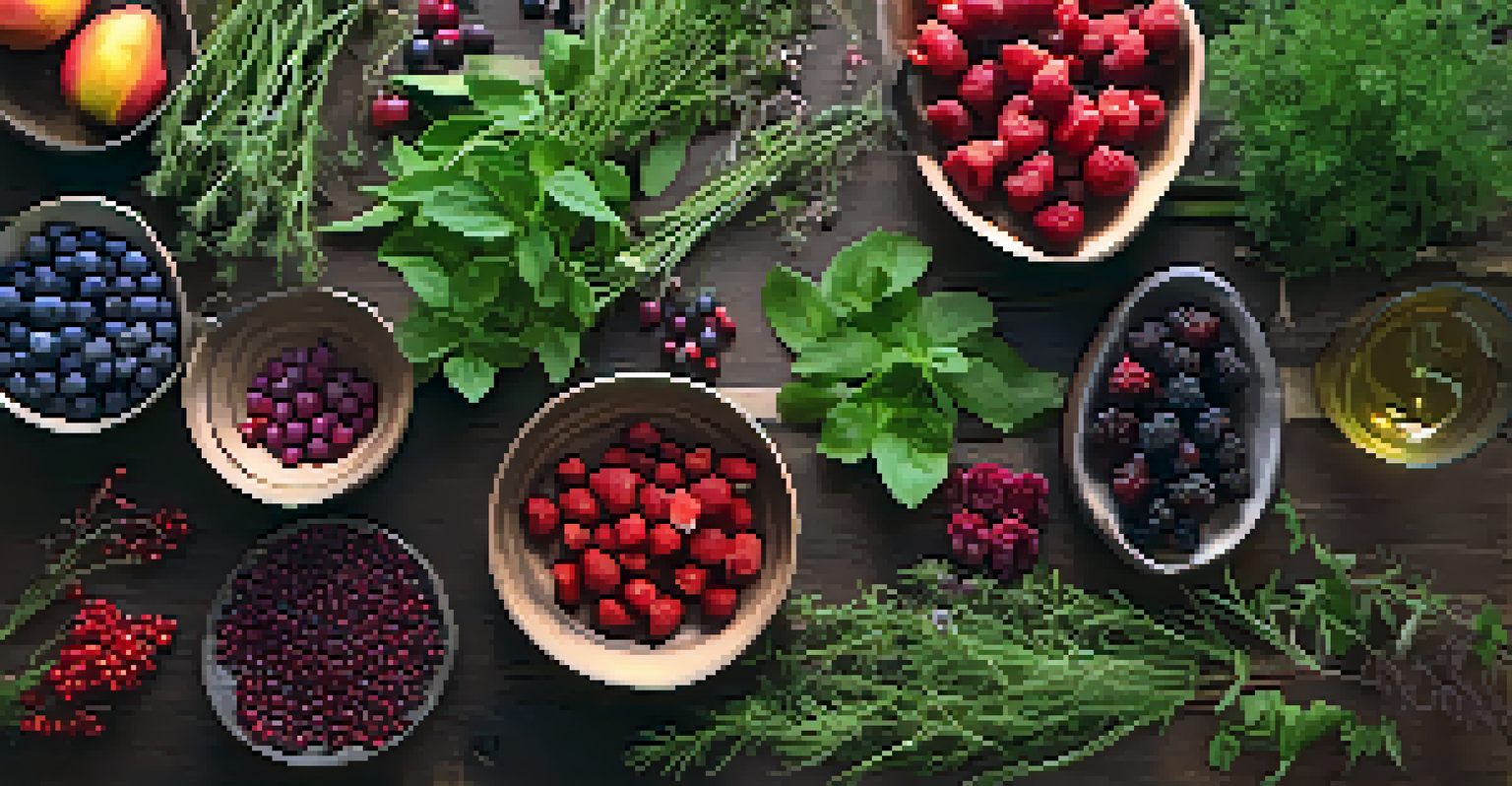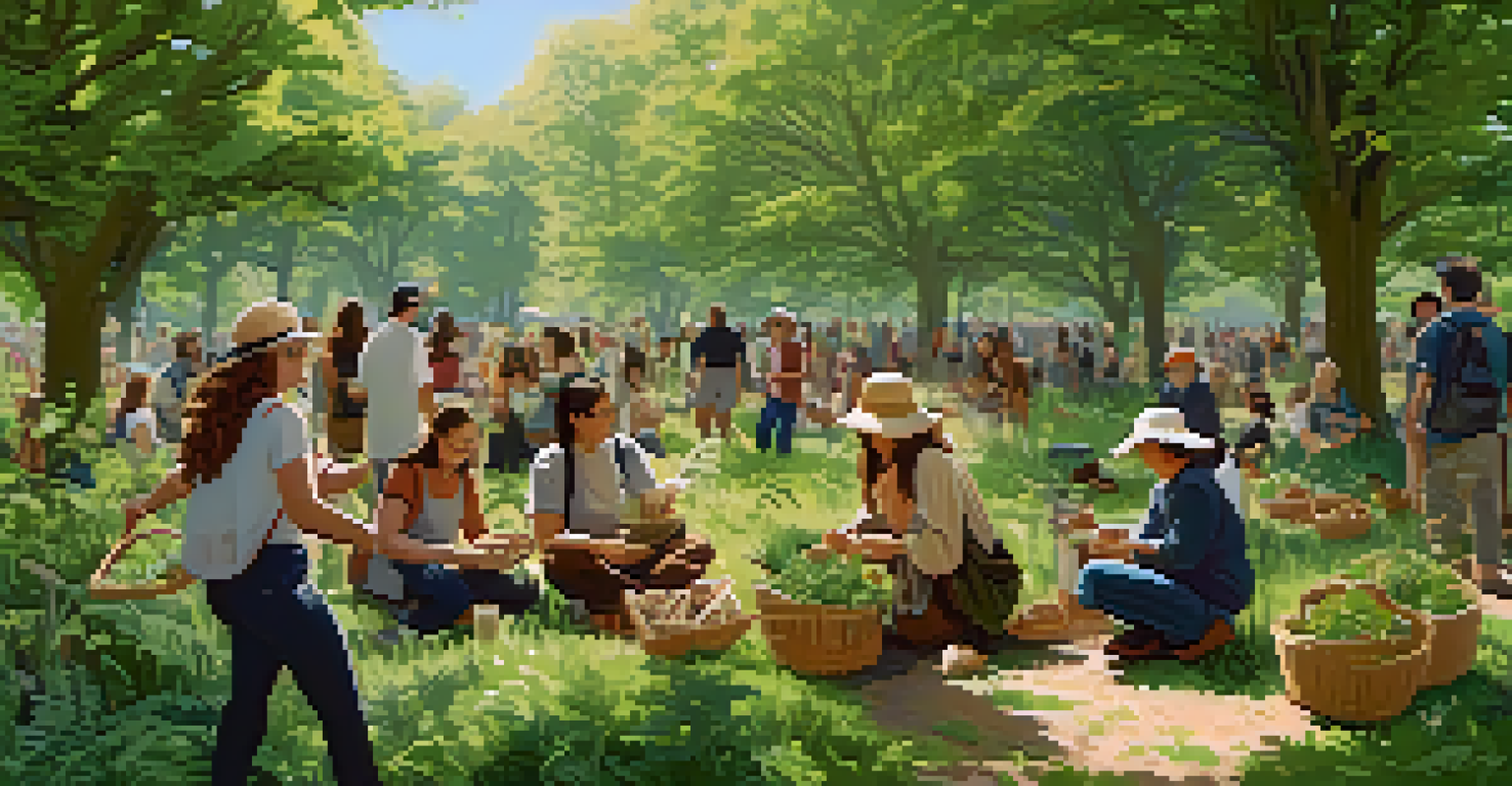Ethical Foraging: Respecting Wildlife and Plant Ecosystems

Understanding Ethical Foraging: What It Means
Ethical foraging is about gathering wild food in a way that respects the environment and its ecosystems. It means taking only what you need and ensuring that the flora and fauna can continue to thrive. This practice encourages a deeper connection with nature and an appreciation for the resources it provides.
Take only pictures, leave only footprints.
When foraging ethically, consider the impact of your actions on local wildlife and plant populations. For example, if you find a patch of wild mushrooms, it's crucial to check that you're not over-harvesting and that the mushrooms can regenerate. The goal is to leave enough behind for the ecosystem to flourish.
Ultimately, ethical foraging is about balance. It allows you to enjoy the thrill of finding wild edibles while maintaining the health of the environment. By being mindful of your choices, you can contribute to preserving the beauty and diversity of our natural world.
The Importance of Knowing Your Local Ecosystem
Understanding your local ecosystem is essential for responsible foraging. Each region has its own unique plants and animals, and recognizing these can help you forage sustainably. Take time to learn about what grows in your area and the seasonal changes that affect availability.

Consider the relationships between species in your ecosystem. For example, if you're foraging for berries, be aware of the birds and other animals that rely on them for food. Overharvesting berries can disrupt their food supply, so it's important to take only what you need and leave some for the wildlife.
Practice Ethical Foraging
Gather wild food responsibly by taking only what you need and ensuring the sustainability of local ecosystems.
Engaging with your local ecosystem not only enhances your foraging experience but also fosters a sense of stewardship. The more you know about the plants and animals around you, the better equipped you'll be to make informed and ethical choices when foraging.
Identifying Edible Plants: Safety First
Before you start foraging, it's vital to properly identify any edible plants. Some plants can look similar, and consuming the wrong one can lead to serious health issues. Investing in a good field guide or using reputable apps can greatly enhance your foraging knowledge and safety.
In every walk with nature, one receives far more than he seeks.
Try joining local foraging groups or workshops where you can learn from experienced foragers. Hands-on experience is invaluable and can help you become more confident in identifying safe plants. Remember, it's better to be cautious than to risk an accidental poisoning.
Once you've identified edible plants, make a habit of double-checking your findings. Nature can be tricky, and variations in plant species can occur. Always trust your instincts and avoid anything you're unsure about, ensuring that your foraging adventures remain safe and enjoyable.
Sustainable Harvesting Techniques for Foragers
Sustainable harvesting involves taking only what you need and ensuring that plants can regenerate. For example, when picking wild herbs, snip a few leaves from multiple plants rather than stripping one bare. This method allows the plant to continue growing and provides food for others in the ecosystem.
Another technique is to forage in areas where the plants are abundant, reducing pressure on smaller populations. By being selective in your harvesting, you help maintain the balance of the ecosystem while still enjoying the benefits of foraging.
Know Your Local Ecosystem
Understanding the plants and animals in your area is crucial for making informed and sustainable foraging choices.
Additionally, always follow the 'one-third rule'—take only one-third of what you find, leave one-third for wildlife, and let one-third grow. This practice promotes sustainability and ensures that future generations can enjoy the same wild bounty.
The Role of Foraging in Biodiversity Conservation
Foraging can play a significant role in biodiversity conservation when done responsibly. By engaging with wild plants and animals, foragers help raise awareness about the importance of preserving natural habitats. This connection to nature can inspire more people to advocate for environmental protection.
Moreover, foraging promotes the use of native plants, which are often better suited to local ecosystems. By choosing to forage for these plants, you can contribute to their conservation and help counteract the spread of invasive species.
Finally, supporting local foraging practices can encourage sustainable land management. As more people become aware of the benefits of wild edibles, it can foster a community that values and protects the land, leading to healthier ecosystems.
Legal Considerations for Foraging
Before you head out on a foraging adventure, it's essential to understand the legal aspects of foraging in your area. Laws can vary significantly from one region to another, with some places allowing foraging on public lands and others prohibiting it entirely. Always do your research to avoid potential legal issues.
Additionally, be mindful of private property. Foraging without permission can lead to fines or even legal action. If you're interested in foraging on private land, consider reaching out to landowners to seek permission and discuss sustainable practices.
Join the Foraging Community
Connecting with fellow foragers enhances your skills and promotes responsible foraging practices.
Staying informed about foraging regulations not only keeps you on the right side of the law but also shows respect for the land and its stewards. By being a responsible forager, you can help foster goodwill between foragers and landowners, ensuring that future generations can enjoy foraging as well.
Connecting with the Foraging Community
One of the best ways to enhance your foraging skills is by connecting with a community of fellow foragers. Local groups, online forums, and social media platforms can provide a wealth of knowledge and support. Sharing experiences, tips, and recipes can make foraging even more enjoyable.
Participating in community foraging events is a great way to learn from others and discover new foraging spots. These gatherings often foster a sense of camaraderie and can lead to lasting friendships with people who share your passion for nature and sustainable practices.

Ultimately, being part of a foraging community enriches your experience and reinforces the importance of ethical foraging. By collaborating with others, you can help promote responsible practices and advocate for the preservation of our natural resources.